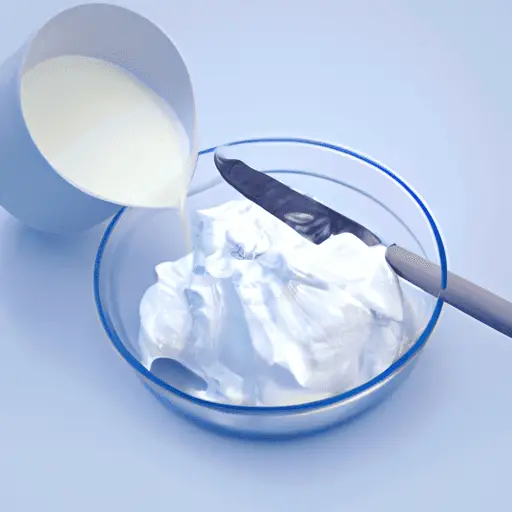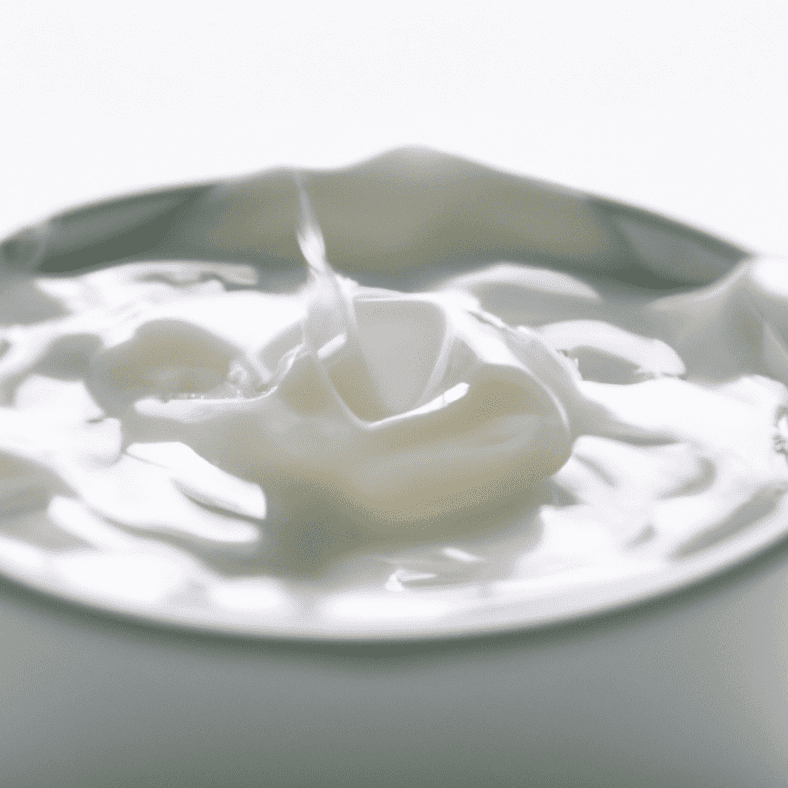-
Table of Contents
- The Impact of Dairy on Skin Health
- Key Takeaways
- Introduction: Unraveling the Dairy-Skin Connection
- The Dairy-Acne Link
- Dairy and Other Skin Conditions
- Individual Differences in Dairy Sensitivity
- Is Dairy-Free the Solution?
- FAQ Section
- 1. Does dairy cause acne?
- 2. Can going dairy-free improve my skin?
- 3. Is lactose-free milk better for my skin?
- 4. What are some dairy alternatives for good skin health?
- 5. Is there a link between dairy and other skin conditions?
- Conclusion: The Dairy-Skin Dilemma
- Further Analysis
The Impact of Dairy on Skin Health

[youtubomatic_search]
Key Takeaways
- Dairy consumption can potentially exacerbate skin conditions such as acne, rosacea, and eczema.
- Research suggests a link between dairy and increased sebum production, which can lead to clogged pores and acne.
- Some individuals may be more sensitive to the effects of dairy on the skin due to lactose intolerance or a milk allergy.
- Eliminating or reducing dairy intake may improve skin health for some individuals, but it’s not a guaranteed solution for everyone.
- More research is needed to fully understand the relationship between dairy and skin health.
Introduction: Unraveling the Dairy-Skin Connection
The relationship between diet and skin health has been a topic of interest for researchers and skincare enthusiasts alike. One particular area of focus is the impact of dairy consumption on skin health. While some swear by the benefits of a dairy-free diet for clear, glowing skin, others argue that the evidence is not conclusive. This article delves into the current research on the dairy-skin connection, providing insights into how dairy might affect your skin and what you can do about it.
The Dairy-Acne Link
Acne is a common skin condition characterized by clogged pores, pimples, and cysts. It’s most prevalent among teenagers, but it can affect individuals of all ages. A study published in the Journal of the Academy of Nutrition and Dietetics found a positive association between dairy intake and acne severity in teenagers. The researchers suggested that hormones and bioactive molecules in milk could contribute to increased sebum production, leading to acne.
Dairy and Other Skin Conditions
Beyond acne, dairy has also been implicated in other skin conditions such as rosacea and eczema. Rosacea is a chronic skin condition that causes redness and visible blood vessels in the face. A study in the Journal of the American Academy of Dermatology found that high intake of low-fat dairy, particularly skim milk, was associated with an increased risk of developing rosacea. Eczema, on the other hand, is a condition that makes the skin red and itchy. While the link between dairy and eczema is less clear, some individuals report an improvement in symptoms after eliminating dairy from their diet.
Individual Differences in Dairy Sensitivity
Not everyone who consumes dairy will experience negative skin effects. Some individuals may be more sensitive to dairy due to lactose intolerance or a milk allergy. Lactose intolerance is a digestive disorder caused by the inability to digest lactose, the main carbohydrate in dairy products. Symptoms can include bloating, diarrhea, and abdominal cramps. A milk allergy, on the other hand, is an immune response to the proteins in milk, which can cause skin reactions such as hives and eczema.
Is Dairy-Free the Solution?
Given the potential link between dairy and skin issues, some might wonder if going dairy-free is the solution. While eliminating or reducing dairy intake may improve skin health for some individuals, it’s not a guaranteed solution for everyone. It’s also important to consider the nutritional implications of removing dairy from the diet, as it’s a key source of calcium and vitamin D. If you’re considering a dairy-free diet for skin health, it’s best to consult with a healthcare provider or a registered dietitian.
FAQ Section
1. Does dairy cause acne?
Research suggests a link between dairy consumption and acne, but it doesn’t prove that dairy directly causes acne. The relationship is complex and may be influenced by other factors such as genetics and overall diet.
2. Can going dairy-free improve my skin?
Some individuals report an improvement in skin health after eliminating dairy from their diet, but results can vary. It’s best to consult with a healthcare provider before making significant dietary changes.
3. Is lactose-free milk better for my skin?
Lactose-free milk has the same hormones and bioactive molecules as regular milk, so it may not necessarily be better for your skin. However, if you’re lactose intolerant, it could help avoid digestive symptoms that could indirectly affect your skin.
4. What are some dairy alternatives for good skin health?
There are many dairy alternatives available, including almond milk, soy milk, and oat milk. These alternatives can be good sources of vitamins and minerals, but they may not provide the same amount of protein as cow’s milk.
5. Is there a link between dairy and other skin conditions?
Research suggests a potential link between dairy and skin conditions such as rosacea and eczema, but more studies are needed to confirm these findings.
Conclusion: The Dairy-Skin Dilemma
The relationship between dairy and skin health is complex and still not fully understood. While research suggests a potential link between dairy consumption and skin conditions such as acne, rosacea, and eczema, more studies are needed to confirm these findings and understand the underlying mechanisms. Individual differences in dairy sensitivity also play a role, with some individuals more likely to experience skin issues after consuming dairy. If you’re considering a dairy-free diet for skin health, it’s important to consult with a healthcare provider to ensure you’re meeting your nutritional needs.
[youtubomatic_search]
Further Analysis
As we continue to explore the impact of diet on skin health, it’s clear that there’s no one-size-fits-all solution. What works for one person may not work for another, and it’s important to consider individual differences in diet, lifestyle, and genetics. As always, a balanced diet, regular exercise, and good skincare habits are key to maintaining healthy skin.

Leave a Reply